Authors & editors
ANU Press has collaborated with a diverse range of authors and editors across a wide variety of academic disciplines. Browse the ANU Press collection by author or editor.

Managing Consultants »
A practical guide for busy public sector managers
Authored by: Leo Dobes
Publication date: July 2016
Public service cutbacks have increased reliance on consultants.
But new legislation and rules governing the procurement of services from consultants are scattered over different legislative instruments.
The first edition of this book attracted a record number of online hits. Busy public sector managers now have available to them an updated version that integrates an easy-to-follow, step-by-step guide that incorporates the many practical tips needed for successful procurement activity.

The Three Sector Solution »
Delivering public policy in collaboration with not-for-profits and business
Edited by: John Butcher, David Gilchrist
Publication date: July 2016
This collection of essays had its origins in a one-day workshop held in August 2015 at The Australian National University. Jointly convened by Dr John Butcher (ANZSOG) and Professor David Gilchrist (Curtin Not-for-profit Initiative) the purpose of the workshop was to bring together academic researchers, policy practitioners and thought leaders to address a variety of emerging issues facing policymakers, public sector commissioners, not-for-profit providers of publicly funded services, and businesses interested in opportunities for social investment. The workshop itself generated a great deal of interest and a ‘baker’s dozen’ of contributors challenged and engaged a full house. The level of enthusiasm shown by the audience for the subject matter was such that the decision to curate the presentations in the form of a book was never in doubt. The editors trust that this volume will vindicate that decision. At one time the state exercised a near monopoly in the delivery of social programs. Today, almost every important public problem is a three sector problem and yet we have little idea of what a high-performing three sector production system looks like. It is the editors’ hope that this volume will provide a foundation for some answers to these important public policy questions.

Modern Japanese Online »
The first course to mastering modern Japanese
Authored by: Naomi Ogi, Duck-Young Lee
Publication date: July 2016
Modern Japanese Online is designed to provide beginning learners of the Japanese language with a solid base of the major grammar and expressions of Japanese in a flexible electronic mode. With detailed explanations and practical exercises, successful learners will gain quality knowledge of the system of the Japanese language, as well as exceptional skills to deal with a variety of verbal expressions necessary for daily conversations.
The learning objectives have been designed and organised on a step-by-step basis. With detailed explanations and rich exercises, Modern Japanese Online aims at ‘easy to use and easy to learn’.
Modern Japanese Online is based on the Grammar and Expressions sections in 日本語がいっぱい 'Nihongo ga Ippai' (published in 2010, by Hituzi Shobo, Tokyo), which is aimed at developing communication skills in terms of Grammar, Expressions, Natural Conversation Notes, Creative Dialogues, and Cultural Notes. Since Modern Japanese Online mainly focuses on the Grammar and Expressions, it is recommended that learners use this eText in conjunction with日本語がいっぱい for comprehensive study of Japanese.
The combined use of Modern Japanese Online and日本語がいっぱい 'Nihongo ga Ippai' aims to cover most grammar items and expressions up to the Level N4 of the Japanese Language Proficiency Test.
Note: Due to the large file size, this ebook might take a little while to open in your ebook reader.
This textbook is used as course material in:
Japanese 1: Spoken JPNS1012 and JPNS6112
Japanese 1: Written JPNS1014 and JPNS6114
Japanese 2: Spoken JPNS2003 and JPNS6113
Japanese 2: Written JPNS2005 and JPNS6115
Download for free
Not available for purchase
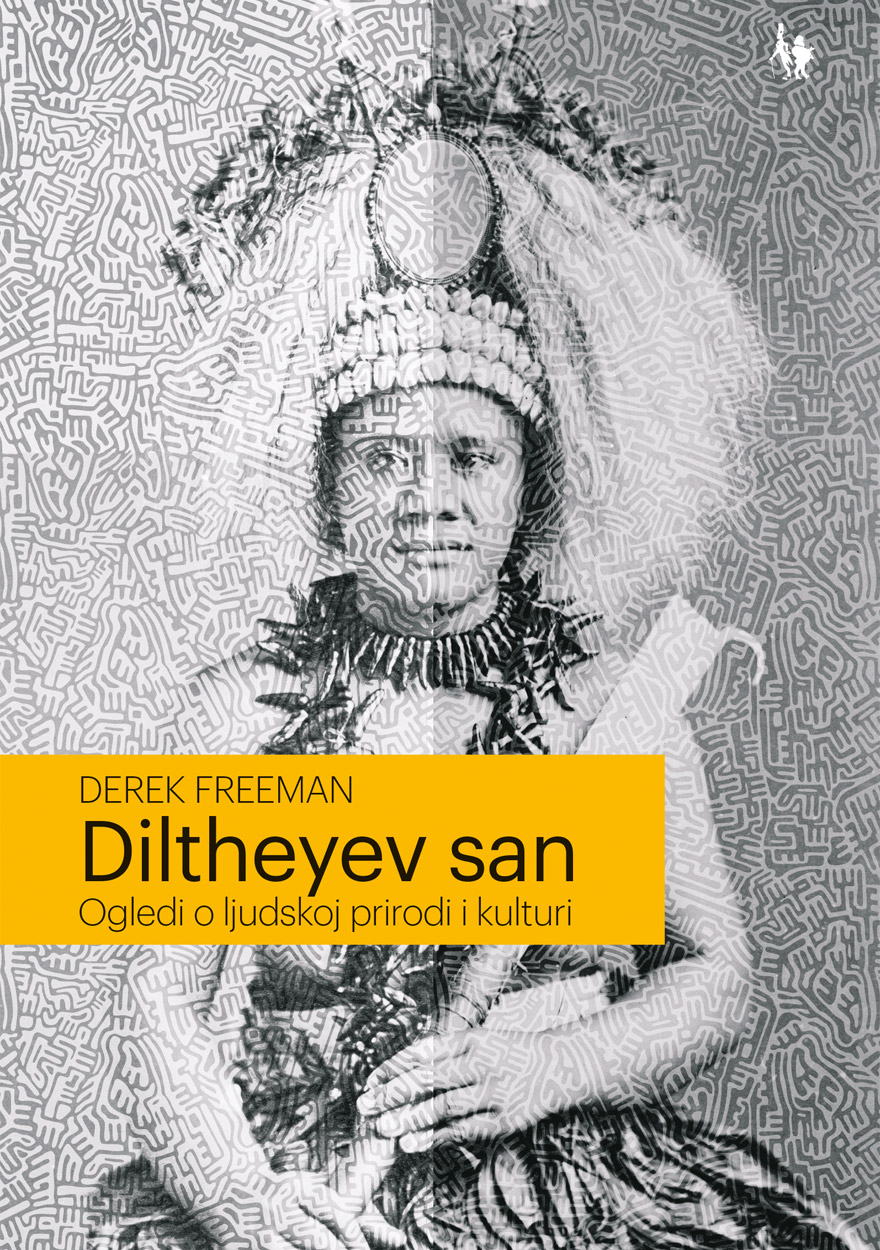
Dilthey’s Dream (Croatian version) »
Essays on human nature and culture
Authored by: Derek Freeman
Publication date: July 2016
With great eloquence, Derek Freeman takes the reader on an intellectual journey through the complexities of philosophical anthropology. Even while the controversial Nature–Nurture debate raged, Freeman contended that the crucial fact that humans had the capacity to make choices was 'both intrinsic to our biology and basic to the very formation of cultures'. Thus the scene was set for his widely publicised criticism of Margaret Mead's book Coming of Age in Samoa. Publishing her research in 1926, Mead concluded that all human behaviour was the result of social conditioning. Freeman refuted this assumption in 1983, urging closer interactions between the biological sciences and cultural studies to bridge the ever-widening chasm threatening all studies of humankind.
Dilthey's Dream is an engagingly powerful set of essays depicting the depth of one man's thinking on issues, which consumed a lifetime.
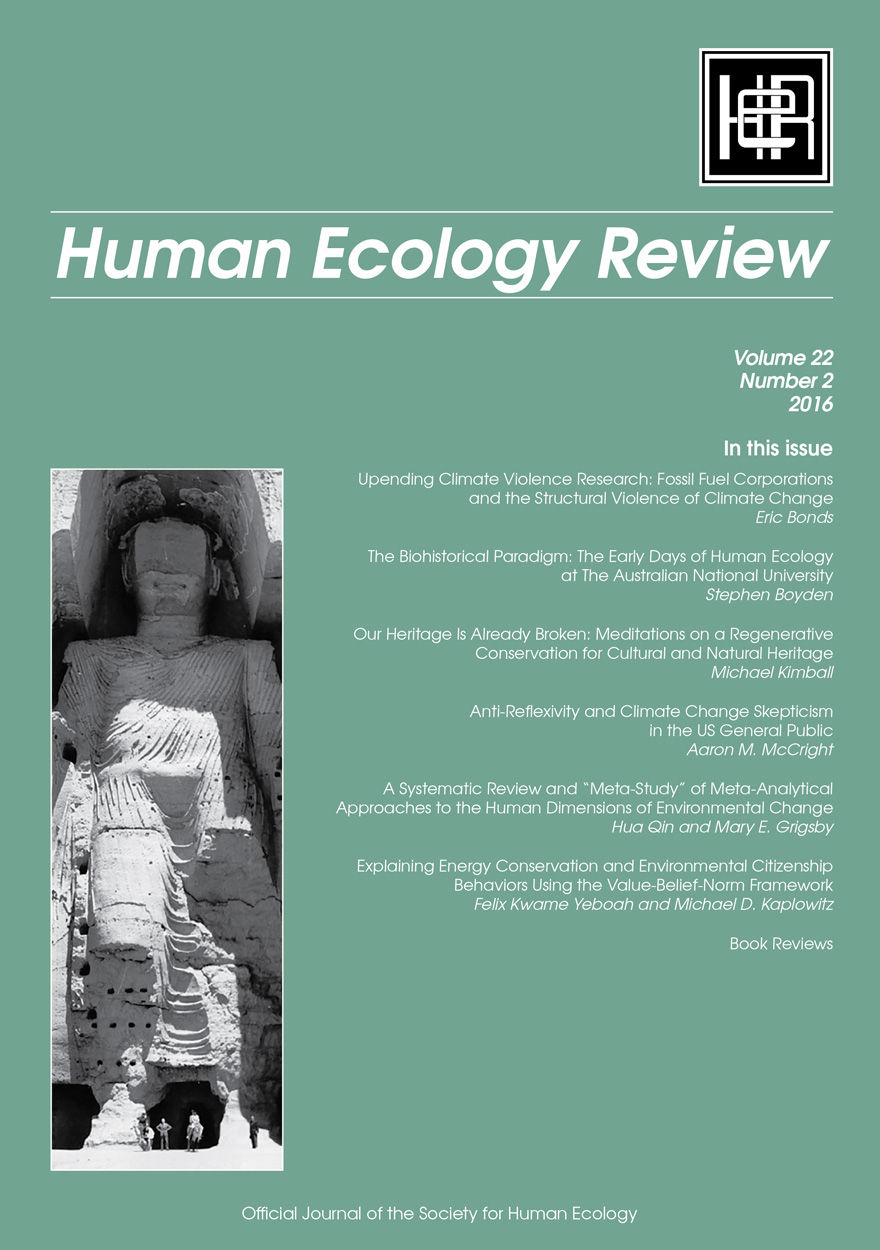
Human Ecology Review: Volume 22, Number 2 »
Publication date: July 2016
Human Ecology Review is a semi-annual journal that publishes peer-reviewed interdisciplinary research on all aspects of human–environment interactions (Research in Human Ecology). The journal also publishes essays, discussion papers, dialogue, and commentary on special topics relevant to human ecology (Human Ecology Forum), book reviews (Contemporary Human Ecology), and letters, announcements, and other items of interest (Human Ecology Bulletin). Human Ecology Review also publishes an occasional paper series in the Philosophy of Human Ecology and Social–Environmental Sustainability.
Download for free
Not available for purchase
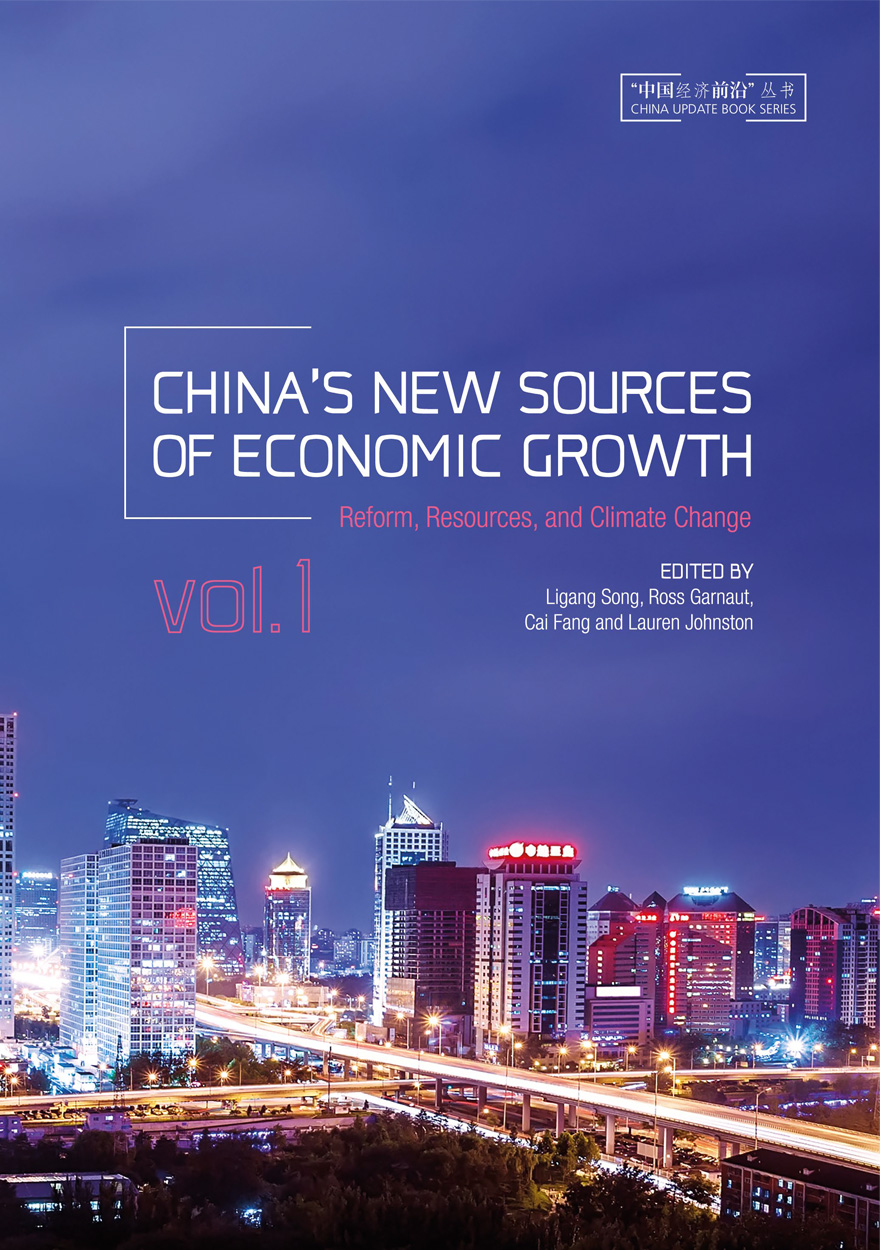
China's New Sources of Economic Growth: Vol. 1 »
Reform, Resources and Climate Change
Edited by: Ligang Song, Ross Garnaut, Cai Fang, Lauren Johnston
Publication date: July 2016
China’s change to a new model of growth, now called the ‘new normal’, was always going to be hard. Events over the past year show how hard it is. The attempts to moderate the extremes of high investment and low consumption, the correction of overcapacity in the heavy industries that were the mainstays of the old model of growth, the hauling in of the immense debt hangover from the fiscal and monetary expansion that pulled China out of the Great Crash of 2008 would all have been hard at any time. They are harder when changes in economic policy and structure coincide with stagnation in global trade and rising protectionist sentiment in developed countries, extraordinarily rapid demographic change and recognition of the urgency of easing the environmental damage from the old model. China’s economy has slowed and there are worries that the authorities will not be able to contain the slowdown within preferred limits. This year’s Update explores the challenge of the slowdown in growth and the change in economic structure. Leading experts on China’s economy and environment review change within China’s new model of growth, and its interaction with ageing, environmental pressure, new patterns of urbanisation, and debt problems at different levels of government. It illuminates some new developments in China’s economy, including the transformational potential of internet banking, and the dynamics of financial market instability. China’s economic development since 1978 is full of exciting change, and this year’s China Update is again the way to know it as it is happening
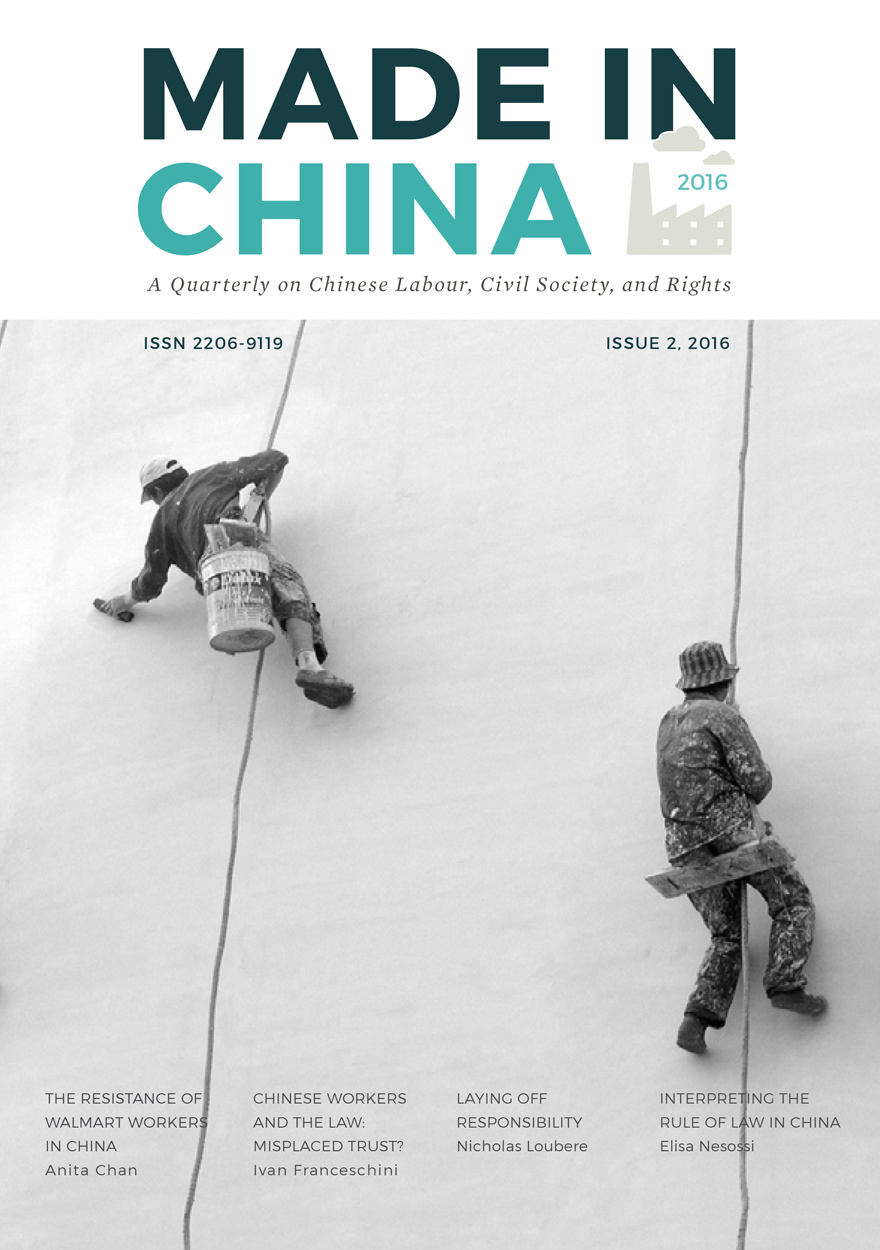
Made in China Journal: Volume 1, Issue 2, 2016 »
Edited by: Ivan Franceschini, Kevin Lin
Publication date: June 2016
Besides the usual summaries of recent events in China, in this issue you will find articles on the struggles of Walmart workers in China, the limits of the ‘rights awakening’ of Chinese workers, and the political implications of resorting to microcredit to alleviate unemployment. Included is also a Forum in which prominent legal experts put the concept of the ‘rule of law’ in China in a wider historical and political perspective and a compendium of the new Law on the Management of Foreign NGOs’ Activities within Mainland China.
Download for free
Not available for purchase
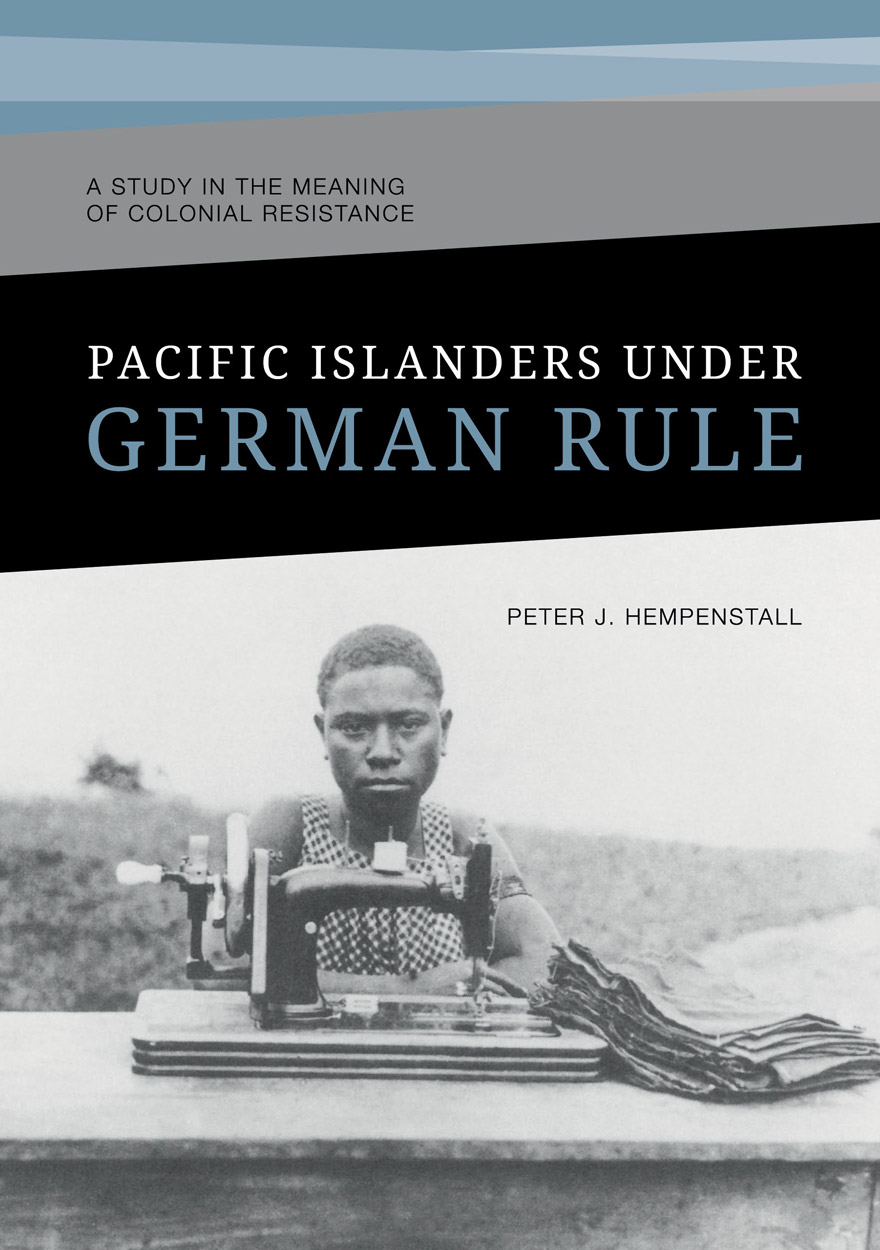
Pacific Islanders Under German Rule »
A Study in the Meaning of Colonial Resistance
Authored by: Peter J. Hempenstall
Publication date: June 2016
This is an important book. It is a reprint of the first detailed study of how Pacific Islanders responded politically and economically to their rulers across the German empire of the Pacific. Under one cover, it captures the variety of interactions between the various German colonial administrations, with their separate approaches, and the leaders and people of Samoa in Polynesia, the major island centre of Pohnpei in Micronesia and the indigenes of New Guinea. Drawing on anthropology, new Pacific history insights and a range of theoretical works on African and Asian resistance from the 1960s and 1970s, it reveals the complexities of Islander reactions and the nature of protests against German imperial rule. It casts aside old assumptions that colonised peoples always resisted European colonisers. Instead, this book argues convincingly that Islander responses were often intelligent and subtle manipulations of their rulers’ agendas, their societies dynamic enough to make their own adjustments to the demands of empire. It does not shy away from major blunders by German colonial administrators, nor from the strategic and tactical mistakes of Islander leaders. At the same time, it raises the profile of several large personalities on both sides of the colonial frontier, including Lauaki Namulau’ulu Mamoe and Wilhelm Solf in Samoa; Henry Nanpei, Georg Fritz and Karl Boeder in Pohnpei; or Governor Albert Hahl and Po Minis from Manus Island in New Guinea.

The Fijian Colonial Experience »
A study of the neotraditional order under British colonial rule prior to World War II
Authored by: Timothy J. Macnaught
Publication date: June 2016
Indigenous Fijians were singularly fortunate in having a colonial administration that halted the alienation of communally owned land to foreign settlers and that, almost for a century, administered their affairs in their own language and through culturally congenial authority structures and institutions. From the outset, the Fijian Administration was criticised as paternalistic and stifling of individualism. But for all its problems it sustained, at least until World War II, a vigorously autonomous and peaceful social and political world in quite affluent subsistence — underpinning the celebrated exuberance of the culture exploited by the travel industry ever since.

A Philosophy of Intellectual Property »
Authored by: Peter Drahos
Publication date: June 2016
Are intellectual property rights like other property rights? More and more of the world’s knowledge and information is under the control of intellectual property owners. What are the justifications for this? What are the implications for power and for justice of allowing this property form to range across social life? Can we look to traditional property theory to supply the answers or do we need a new approach? Intellectual property rights relate to abstract objects – objects like algorithms and DNA sequences. The consequences of creating property rights in such objects are far-reaching. A Philosophy of Intellectual Property argues that lying at the heart of intellectual property are duty-bearing privileges. We should adopt an instrumentalist approach to intellectual property and reject a proprietarian approach – an approach which emphasises the connection between labour and property rights. The analysis draws on the history of intellectual property, legal materials, the work of Grotius, Pufendorf, Locke, Marx and Hegel, as well as economic, sociological and legal theory. The book is designed to be accessible to specialists in a number of fields as well as students. It will interest philosophers, political scientists, economists, and legal scholars, as well as those professionals concerned with policy issues raised by modern technologies and the information society.
Download for free
Not available for purchase
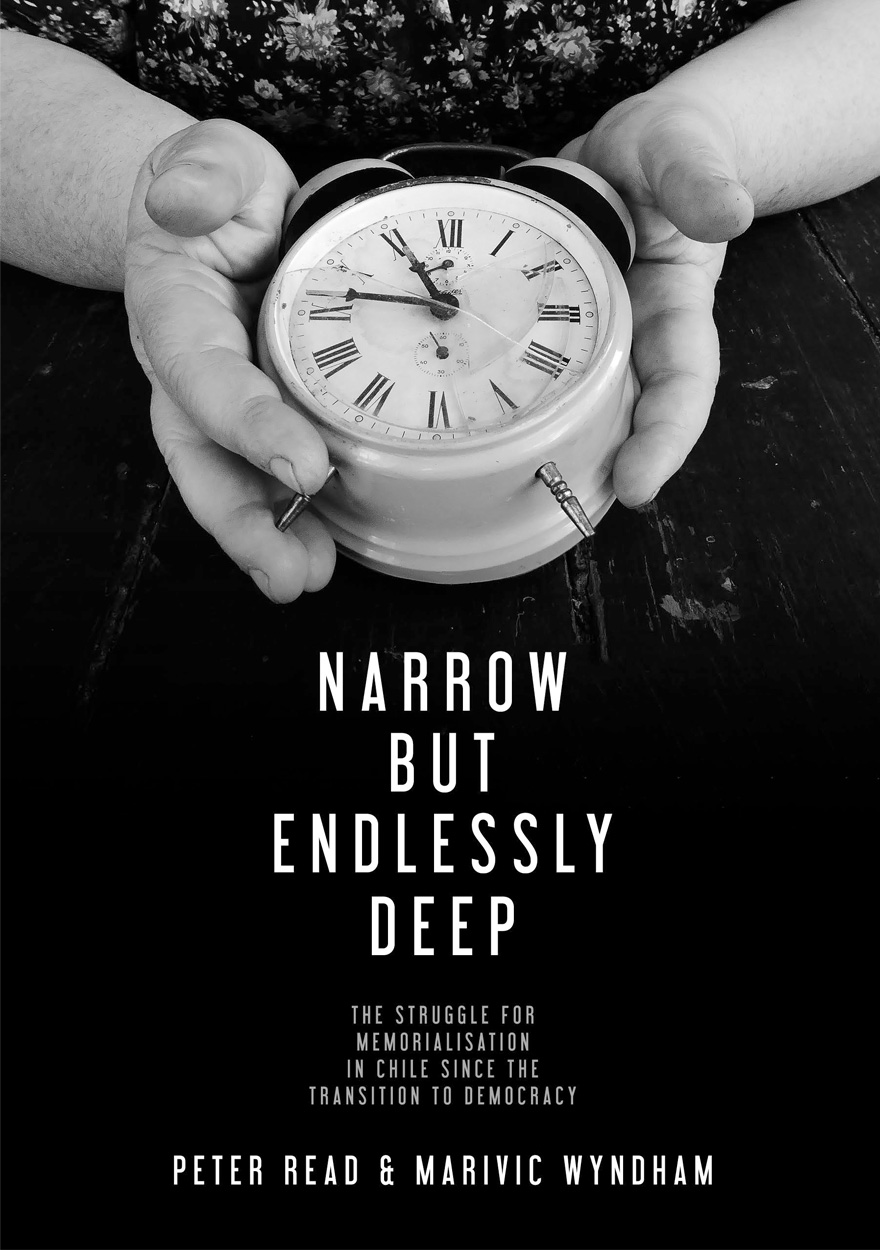
Narrow But Endlessly Deep »
The struggle for memorialisation in Chile since the transition to democracy
Authored by: Peter Read, Marivic Wyndham
Publication date: June 2016
On 11 September 1973, the Chilean Chief of the Armed Forces Augusto Pinochet overthrew the Popular Unity government of Salvador Allende and installed a military dictatorship. Yet this is a book not of parties or ideologies but public history. It focuses on the memorials and memorialisers at seven sites of torture, extermination, and disappearance in Santiago, engaging with worldwide debates about why and how deeds of violence inflicted by the state on its own citizens should be remembered, and by whom.
The sites investigated — including the infamous National Stadium — are among the most iconic of more than 1,000 such sites throughout the country.
The study grants a glimpse of the depth of feeling that survivors and the families of the detained-disappeared and the politically executed bring to each of the sites. The book traces their struggle to memorialise each one, and so unfolds their idealism and hope, courage and frustration, their hatred, excitement, resentment, sadness, fear, division and disillusionment.
‘This is a beautifully written book, a sensitive treatment of the issues and lives of those who have faced a great deal of loss, most often as unsung heroes, in what are now recognized as Chilean sites of memory. The book is a testament to people who have not been asked to speak, until Peter Read and Marivic Wyndham ask them to tell their stories. They do not shy away from hard tensions about memorialization, the difficulties of challenging a powerful state and the long and arduous struggles to ensure less powerful voices are heard.’
— Professor Katherine Hite, Frederick Ferris Thompson Chair of Political Science, Vassar College, USA.
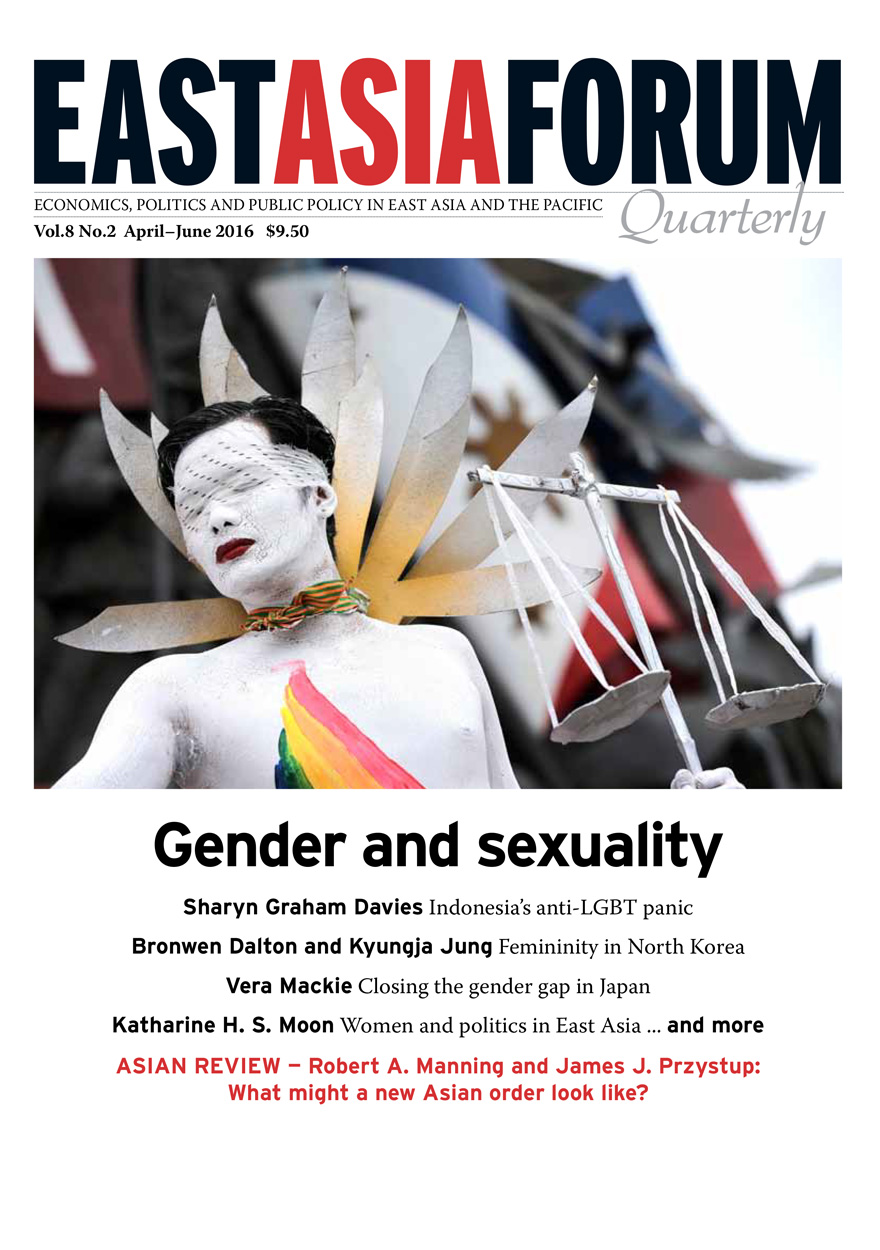
East Asia Forum Quarterly: Volume 8, Number 2, 2016 »
Publication date: June 2016
East Asia Forum Quarterly grew out of East Asia Forum (EAF) online, which has developed a reputation for providing a platform for the best in Asian analysis, research and policy comment on the Asia Pacific region in world affairs. EAFQ aims to provide a further window onto research in the leading research institutes in Asia and to provide expert comment on current developments within the region. The East Asia Forum Quarterly, like East Asia Forum online, is an initiative of the East Asia Forum (EAF) and its host organisation, the East Asian Bureau of Economic Research (EABER) in the Crawford School of Economics and Government in the College of Asia & the Pacific at The Australian National University.
Download for free
Not available for purchase
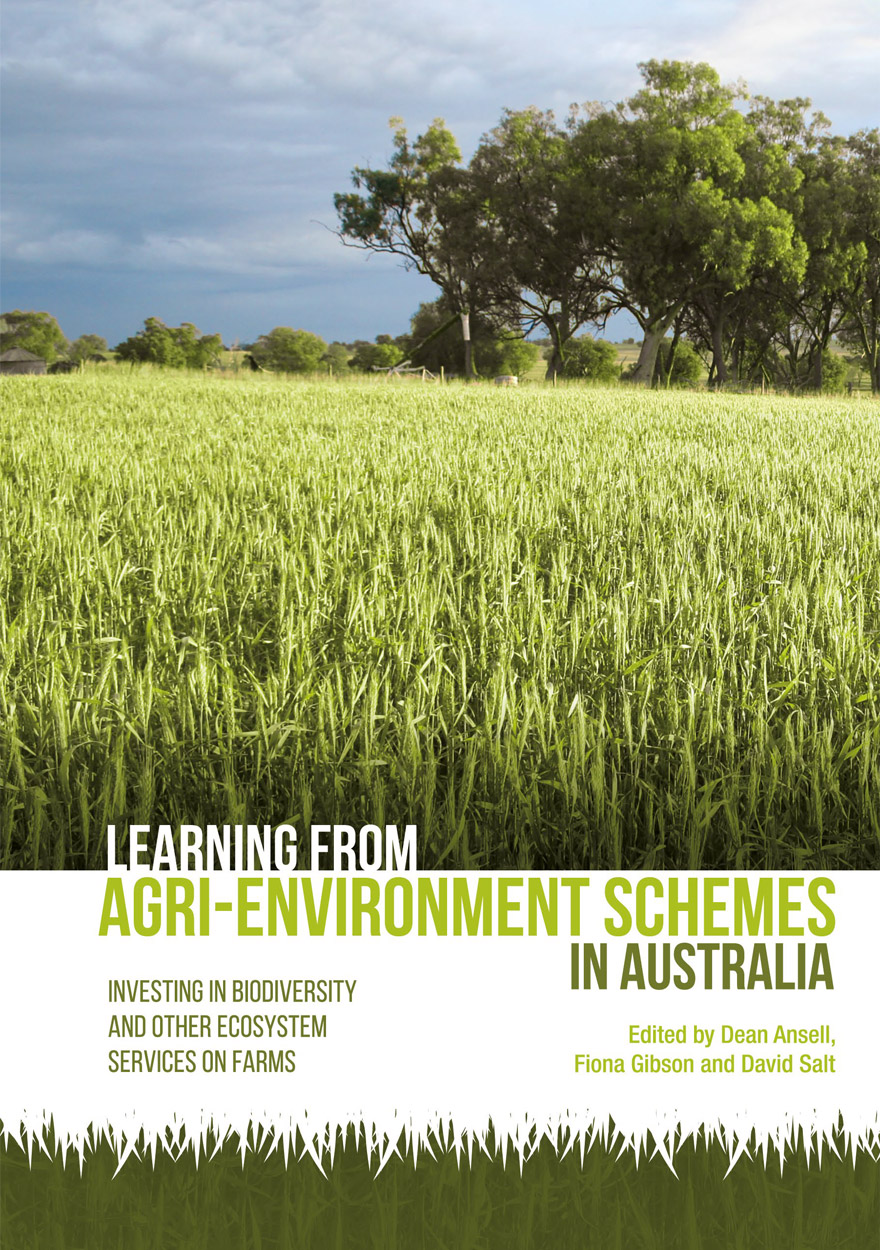
Learning from agri-environment schemes in Australia »
Investing in biodiversity and other ecosystem services on farms
Publication date: May 2016
Learning from agri-environment schemes in Australia is a book about the birds and the beef — more specifically it is about the billions of dollars that governments pay farmers around the world each year to protect and restore biodiversity. After more than two decades of these schemes in Australia, what have we learnt? Are we getting the most out of these investments, and how should we do things differently in the future? Involving contributions from ecologists, economists, social scientists, restoration practitioners and policymakers, this book provides short, engaging chapters that cover a wide spectrum of environmental, agricultural and social issues involved in agri-environment schemes.

Geography, Power, Strategy and Defence Policy »
Essays in Honour of Paul Dibb
Edited by: Desmond Ball, Sheryn Lee
Publication date: May 2016
Paul Dibb AM has had an extraordinary career. He enjoys an international scholarly reputation of the highest order, while at the same time he has done much distinguished public service. He was a pioneer in moving back and forth between posts in government departments, notably the Department of Defence, and academia. He began as a student of Soviet economic geography, and then spent nearly two decades in Australian Defence intelligence, including service as Head of the National Assessments Staff (NAS) in the Joint Intelligence Organisation (JIO) from 1974 to 1978, Deputy Director of JIO in 1978–80, Director of JIO in 1986–88, and Deputy Secretary of Defence (Strategy and Intelligence) in 1988–91, before becoming a Professor in the Strategic and Defence Studies Centre (SDSC) at The Australian National University (where he is now an Emeritus Professor). He has been quite happy to engage in vigorous public debate about important and controversial strategic and defence issues, giving him a high public profile.
The contributors include two former Chancellors of ANU, one a former Minister of Defence, and the other a former Secretary of the Department of Defence, a former Chief of the Defence Force (CDF), and other former senior officials, as well as academic specialists in geography, international relations, and strategic and defence studies.
‘This would be a high-quality set of essays for any edited volume, but for a festschrift – a genre that sometimes generates uneven collections – this is an exceptional assembly. The individual pieces are very good; together, they have coherence and power.’
– Professor Ian Hall, Professor of International Relations, Griffith University

War, Strategy and History »
Essays in Honour of Professor Robert O’Neill
Edited by: Daniel Marston, Tamara Leahy
Publication date: May 2016
This is a collection of essays in honour of eminent Professor Robert O’Neill. Each chapter was written by prominent academics and practitioners who have had a professional connection with Professor O’Neill during his long and distinguished career. The overarching themes running throughout the book are war, strategy and history. All the essays are shaped by the role that Professor O’Neill has played over the last 50 years in the debates in Australia, Europe and the US. This book covers not only Professor O’Neill’s impressive career, but also the evolution of strategy in practice, and of strategic studies as an internationally recognised academic discipline.
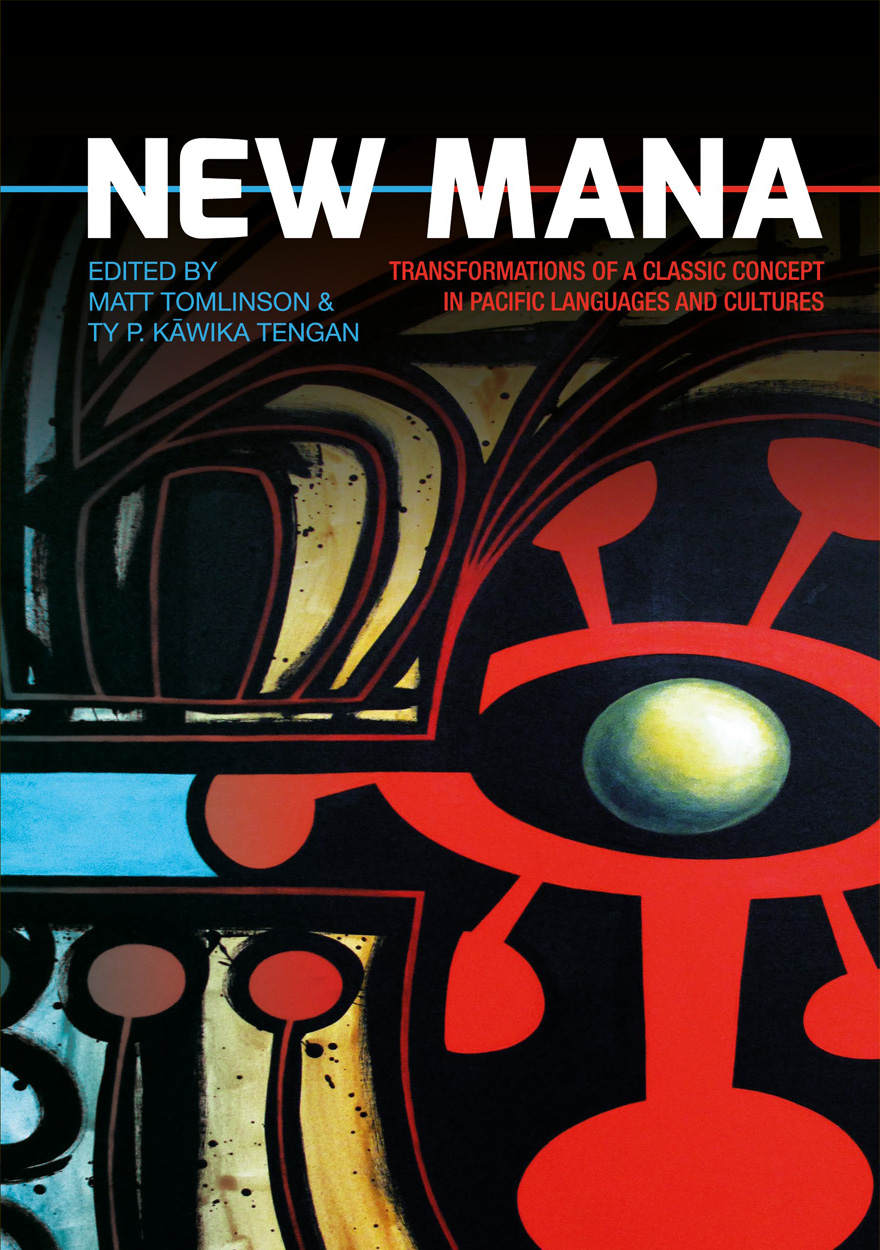
New Mana »
Transformations of a Classic Concept in Pacific Languages and Cultures
Edited by: Matt Tomlinson, Ty P. Kāwika Tengan
Publication date: April 2016
‘Mana’, a term denoting spiritual power, is found in many Pacific Islands languages. In recent decades, the term has been taken up in New Age movements and online fantasy gaming. In this book, 16 contributors examine mana through ethnographic, linguistic, and historical lenses to understand its transformations in past and present. The authors consider a range of contexts including Indigenous sovereignty movements, Christian missions and Bible translations, the commodification of cultural heritage, and the dynamics of diaspora. Their investigations move across diverse island groups—Papua New Guinea, Solomon Islands, Vanuatu, Fiji, Tonga, Samoa, Hawai‘i, and French Polynesia—and into Australia, North America and even cyberspace. A key insight that the volume develops is that mana can be analysed most productively by paying close attention to its ethical and aesthetic dimensions.
Since the late nineteenth century, mana has been an object of intense scholarly interest. Writers in many fields including anthropology, linguistics, history, religion, philosophy, and missiology have long debated how the term should best be understood. The authors in this volume review mana’s complex intellectual history but also describe the remarkable transformations going on in the present day as scholars, activists, church leaders, artists, and entrepreneurs take up mana in new ways.
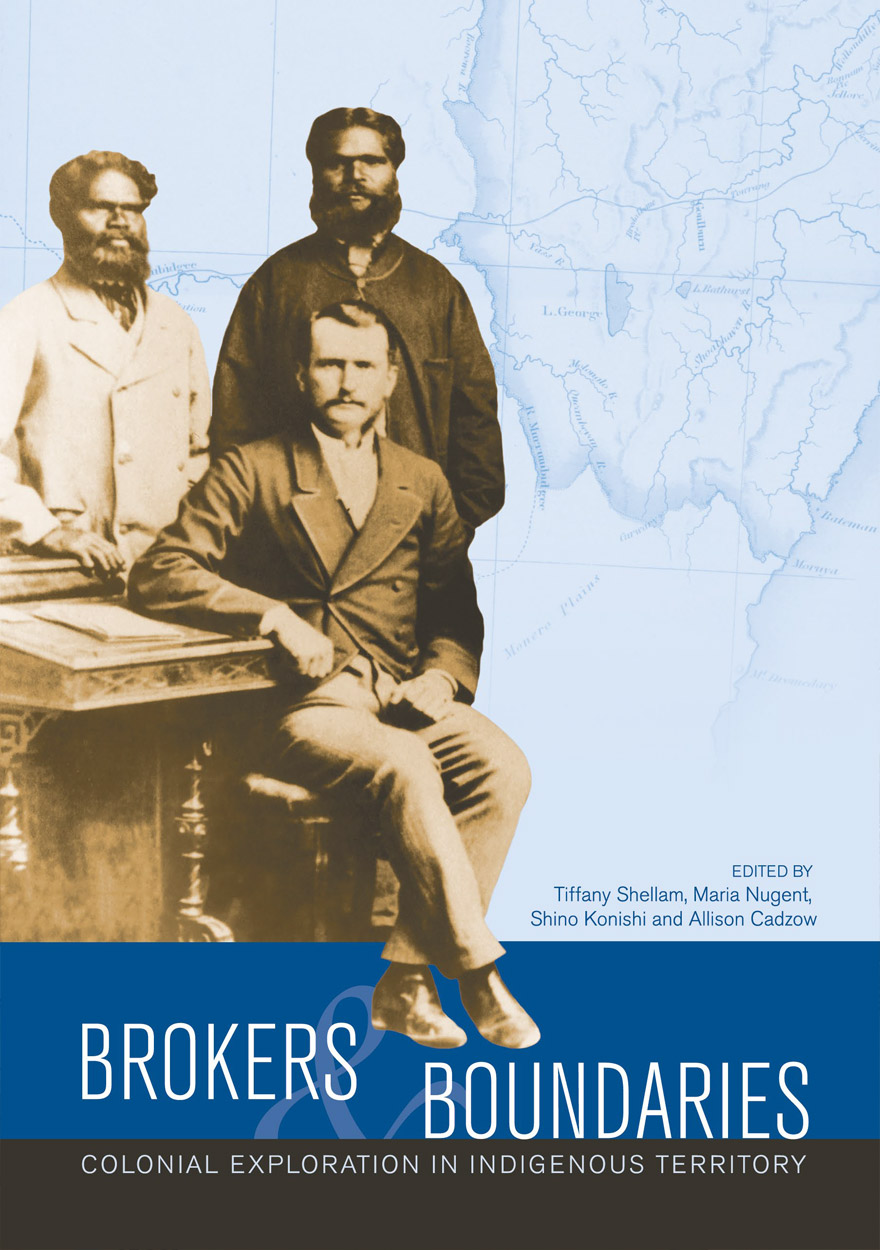
Brokers and boundaries »
Colonial exploration in Indigenous territory
Publication date: April 2016
Colonial exploration continues, all too often, to be rendered as heroic narratives of solitary, intrepid explorers and adventurers. This edited collection contributes to scholarship that is challenging that persistent mythology. With a focus on Indigenous brokers, such as guides, assistants and mediators, it highlights the ways in which nineteenth-century exploration in Australia and New Guinea was a collective and socially complex enterprise. Many of the authors provide biographically rich studies that carefully examine and speculate about Indigenous brokers’ motivations, commitments and desires. All of the chapters in the collection are attentive to the specific local circumstances as well as broader colonial contexts in which exploration and encounters occurred.
'This collection breaks new ground in its emphasis on Indigenous agency and Indigenous–explorer interactions. It will be of value to historians and others for a very long time.'
— Professor Ann Curthoys, University of Sydney
'In bringing together this group of authors, the editors have brought to histories of colonialism the individuality of these intermediaries, whose lives intersected colonial exploration in Australia and New Guinea.'
— Dr Jude Philp, Macleay Museum
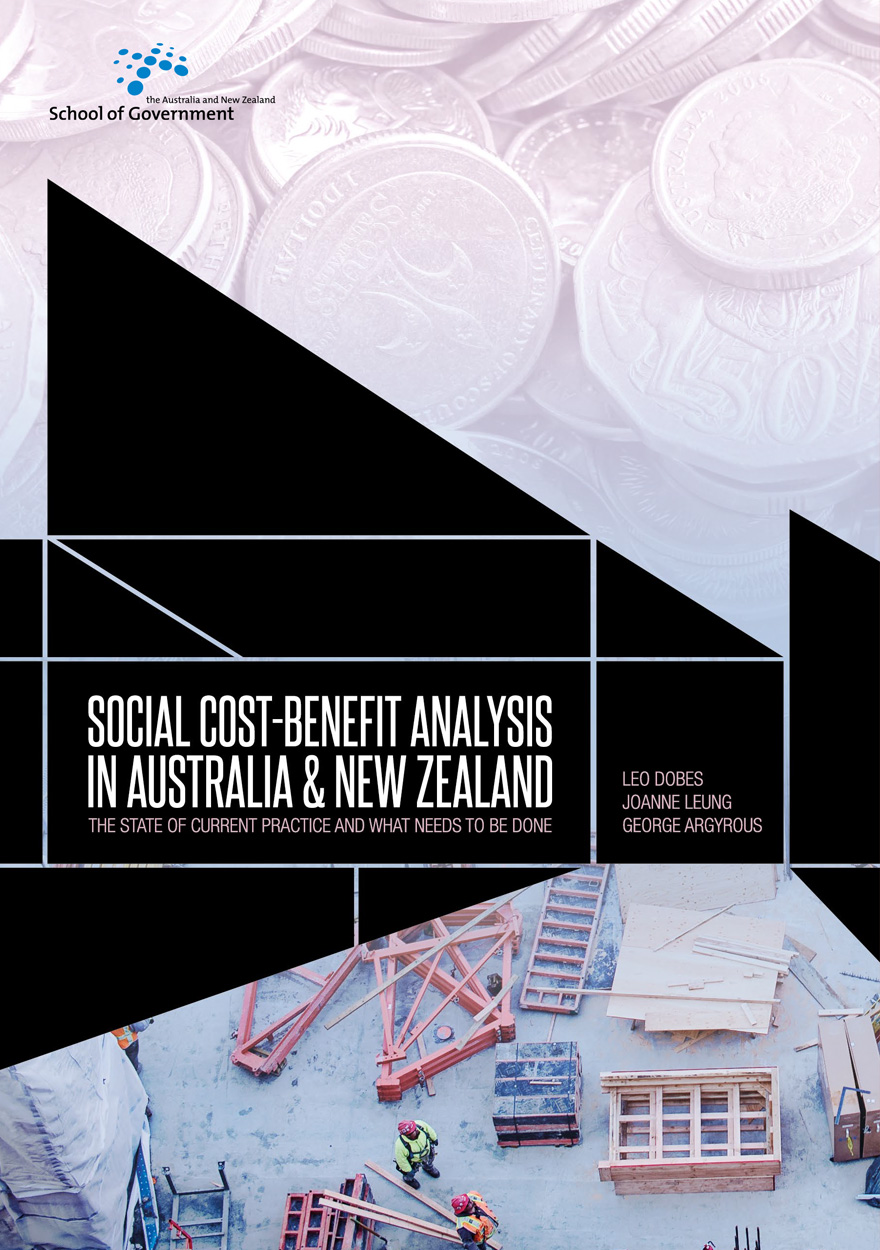
Social cost-benefit analysis in Australia and New Zealand »
The state of current practice and what needs to be done
Publication date: April 2016
All is not well with the evaluation of government programs and projects.
Resources available to any society are limited. If governments are to increase the well-being of their citizens, they must be able to select and implement the socially most beneficial projects and policies.
But many government agencies lack the expertise to carry out a cost-benefit analysis, or even to commission one. Commercial consultants, on the other hand, often have some analytical expertise, but are not immune from adopting approaches that accommodate the proclivities of their client agencies.
In order to increase analytical rigour and methodological consistency, this publication urges the adoption of a ‘belts and braces’ set of protocols for use in project evaluation.

Master poets, ritual masters »
The art of oral composition among the Rotenese of Eastern Indonesia
Authored by: James J. Fox
Publication date: April 2016
This is a study in oral poetic composition. It examines how oral poets compose their recitations. Specifically, it is a study of the recitations of 17 separate master poets from the Island of Rote recorded over a period of 50 years. Each of these poets offers his version of what is culturally considered to be the ‘same’ ritual chant. These compositions are examined in detail and their oral formulae are carefully compared to one another.
Professor James J. Fox is an anthropologist who carried out his doctoral field research on the Island of Rote in eastern Indonesia in 1965–66. In 1965, he began recording the oral traditions of the island and developed a close association with numerous oral poets on the island. After many subsequent visits, in 2006, he began a nine-year project that brought groups of oral poets to Bali for week-long recording sessions. Recitations gathered over a period of 50 years are the basis for this book.
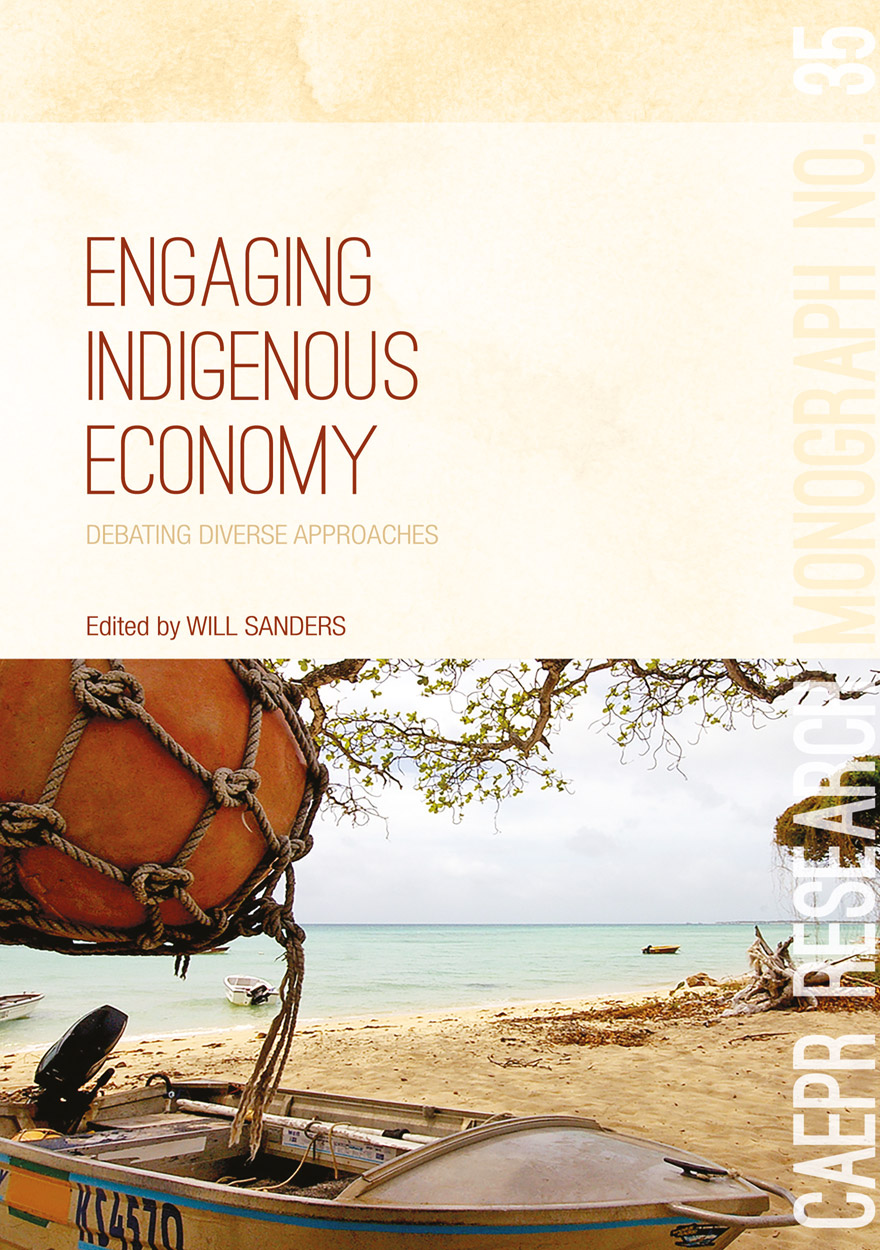
Engaging Indigenous Economy »
Debating diverse approaches
Edited by: Will Sanders
Publication date: April 2016
The engagement of Indigenous Australians in economic activity is a matter of long-standing public concern and debate. Jon Altman has been intellectually engaged with Indigenous economic activity for almost 40 years, most prominently through his elaboration of the concept of the hybrid economy, and most recently through his sustained and trenchant critique of policy. He has inspired others also to engage with these important issues, both through his writing and through his position as the foundation Director of The Australian National University’s Centre for Aboriginal Economic Policy research from 1990 to 2010.
The year 2014 saw both Jon’s 60th birthday and his retirement from CAEPR. This collection of essays marks those events. Contributors include long‑standing colleagues from the disciplines of economics, anthropology and political science, and younger scholars who have been inspired by Jon’s approach in developing their own research projects. All point to the complexity as well as the importance of engaging with Indigenous economic activity — conceptually, empirically and as a strategic concern for public policy.
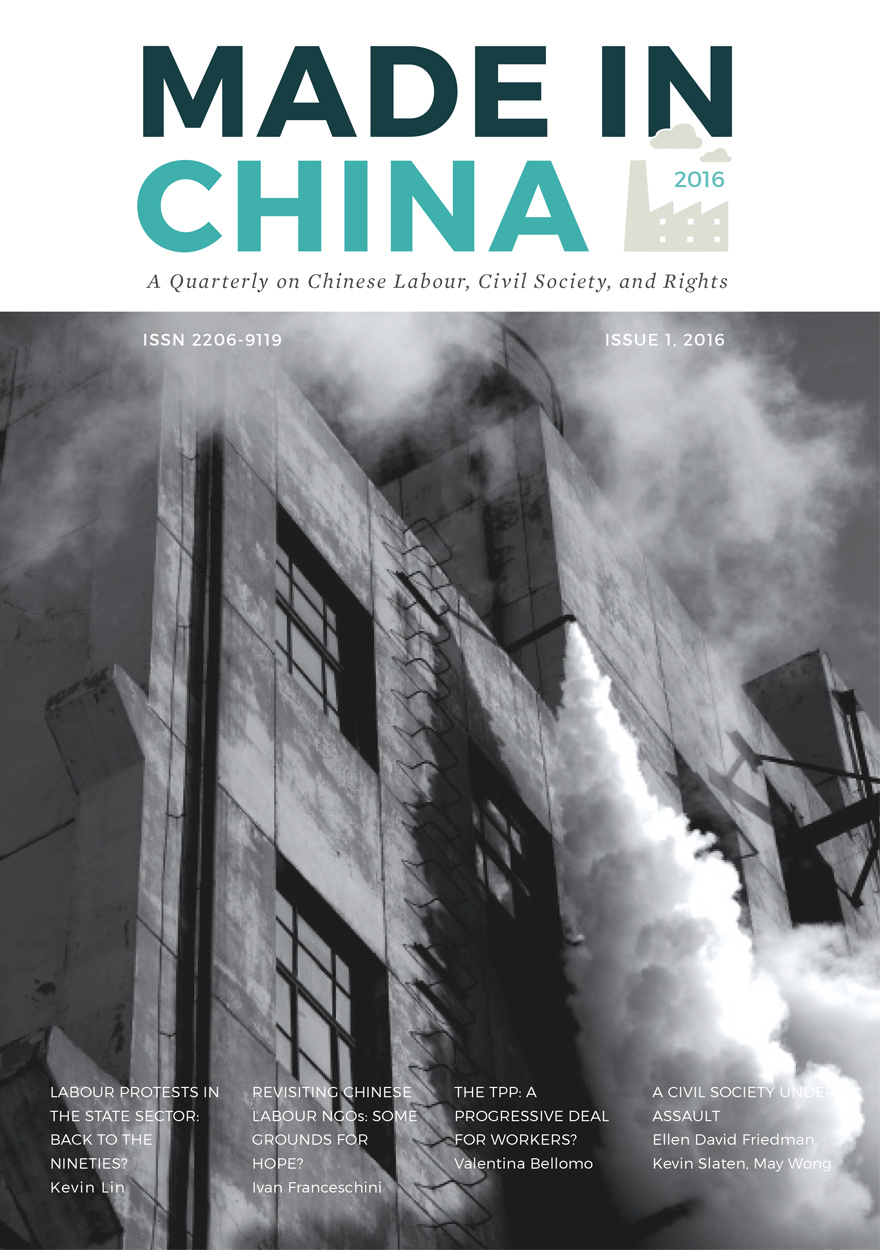
Made in China Journal: Volume 1, Issue 1, 2016 »
Edited by: Ivan Franceschini, Kevin Lin
Publication date: March 2016
In this first issue, you will find summaries of recent events that have taken place in China, as well as a series of columns on specific topics, such as the recent wave of protests in the Chinese state sector and the expected impact of the Trans-Pacific Partnership on labour rights. We devote the core of the first issue to the plight of Chinese labour NGOs, contextualising it through a debate between three prominent international labour experts. Finally, we celebrate the award of the prestigious Joseph Levenson Prize to Luigi Tomba, a long-standing researcher of Chinese labour.
Download for free
Not available for purchase
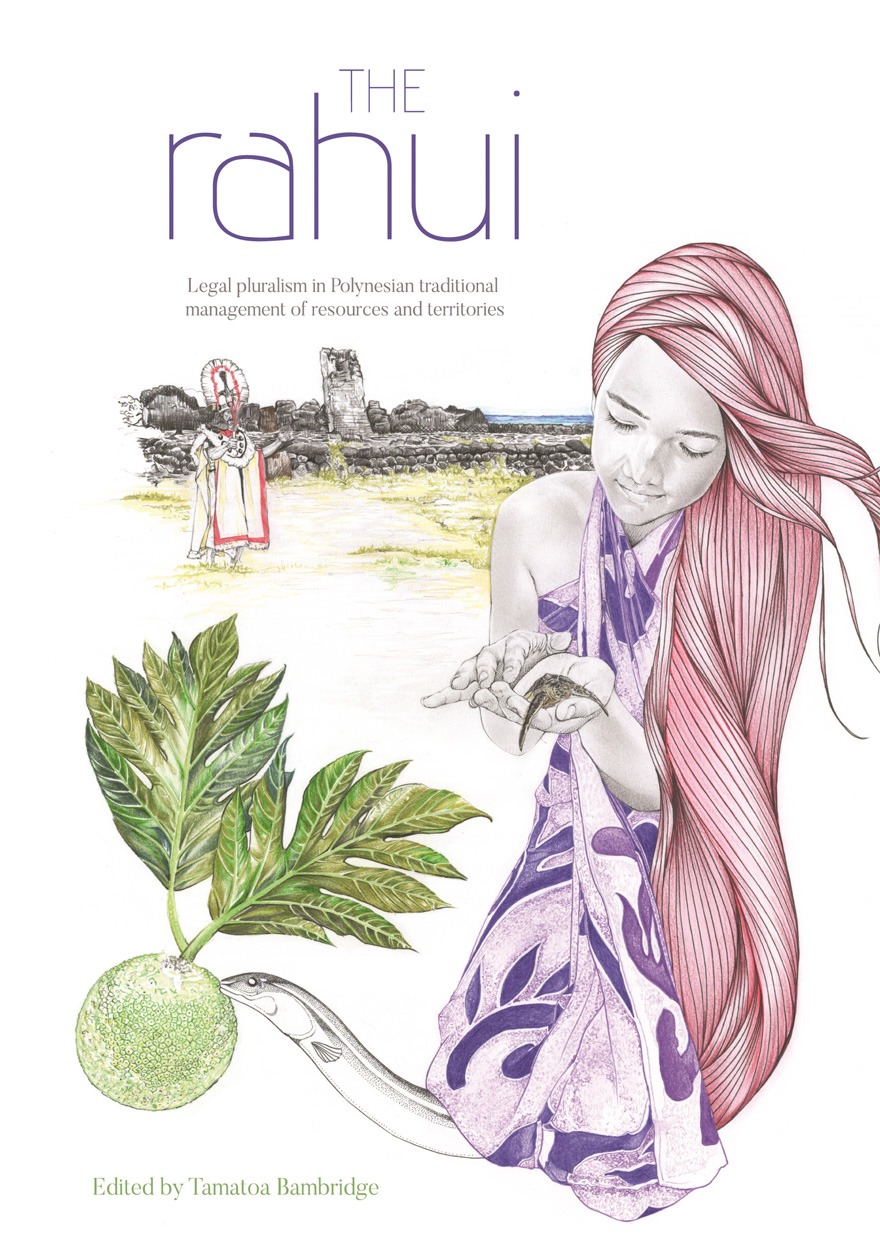
The Rahui »
Legal pluralism in Polynesian traditional management of resources and territories
Edited by: Tamatoa Bambridge
Publication date: March 2016
This collection deals with an ancient institution in Eastern Polynesia called the rahui, a form of restricting access to resources and/or territories.
While tapu had been extensively discussed in the scientific literature on Oceanian anthropology, the rahui is quite absent from secondary modern literature. This situation is all the more problematic because individual actors, societies, and states in the Pacific are readapting such concepts to their current needs, such as environment regulation or cultural legitimacy. This book assembles a comprehensive collection of current works on the rahui from a legal pluralism perspective. This study as a whole underlines the new assertion of identity that has flowed from the cultural dimension of the rahui. Today, rahui have become a means for indigenous communities to be fully recognised on a political level. Some indigenous communities choose to restore the rahui in order to preserve political control of their territory or, in some cases, to get it back. For the state, better control of the rahui represents a way of asserting its legitimacy and its sovereignty, in the face of this reassertion by indigenous communities.

Connected and Disconnected in Viet Nam »
Remaking Social Relations in a Post-socialist Nation
Edited by: Philip Taylor
Publication date: March 2016
Vietnam’s shift to a market-based society has brought about profound realignments in its people’s relations with each other. As the nation continues its retreat from the legacies of war and socialism, significant social rifts have emerged that divide citizens by class, region and ethnicity. By drawing on social connections as a traditional resource, Vietnamese are able to accumulate wealth, overcome marginalisation and achieve social mobility. However, such relationship-building strategies are also fraught with peril for they have the potential to entrench pre-existing social divisions and lead to new forms of disconnectedness.
This book examines the dynamics of connection and disconnection in the lives of contemporary Vietnamese. It features 11 chapters by anthropologists who draw upon research in both highland and lowland contexts to shed light on social capital disparities, migration inequalities and the benefits and perils of gift exchange. The authors investigate ethnic minority networks, the politics of poverty, patriotic citizenship, and the ‘heritagisation’ of culture. Tracing shifts in how Vietnamese people relate to their consociates and others, the chapters elucidate the social legacies of socialism, nation-building and the transition to a globalised market-based economy. With compelling case studies and including many previously unheard perspectives, this book offers original insights into social ties and divisions among the modern Vietnamese.
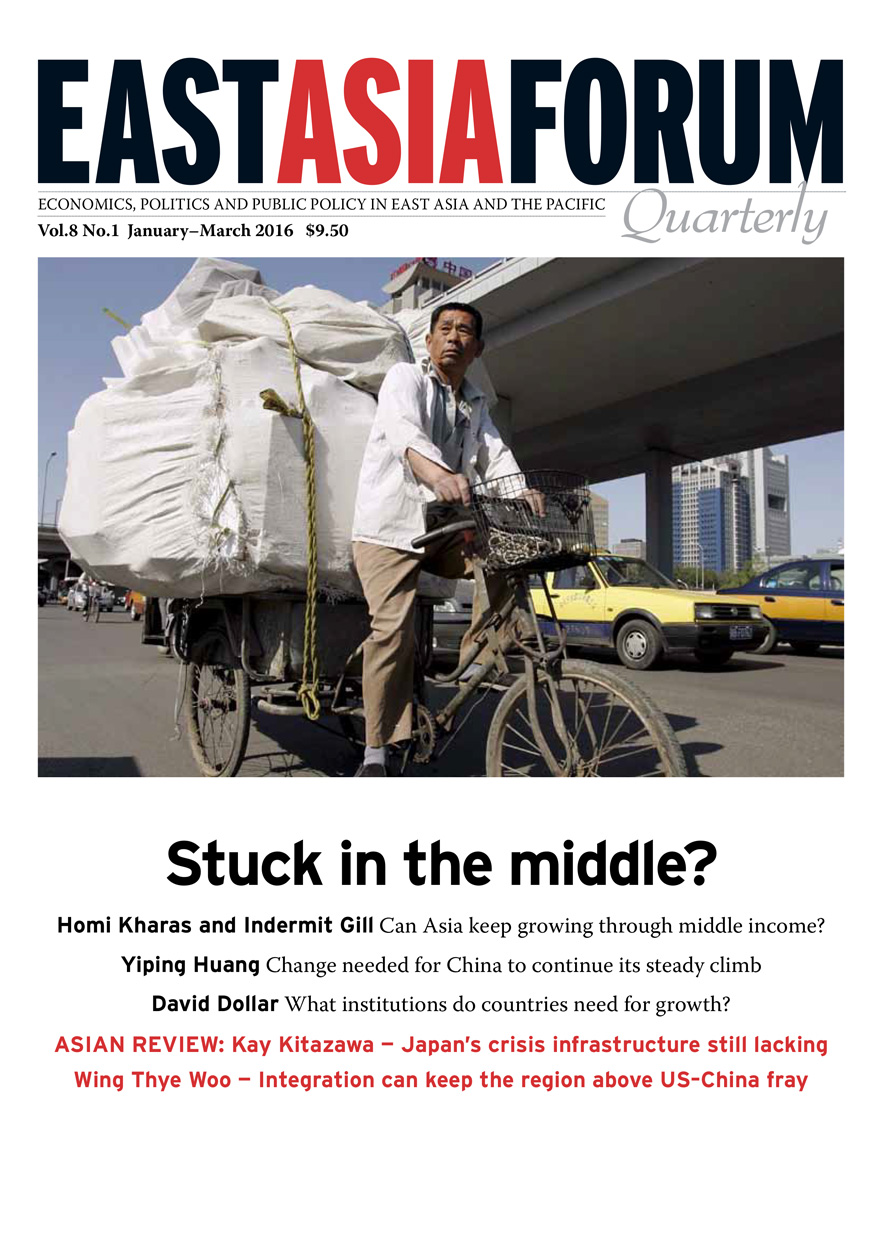
East Asia Forum Quarterly: Volume 8, Number 1, 2016 »
Publication date: March 2016
East Asia Forum Quarterly grew out of East Asia Forum (EAF) online, which has developed a reputation for providing a platform for the best in Asian analysis, research and policy comment on the Asia Pacific region in world affairs. EAFQ aims to provide a further window onto research in the leading research institutes in Asia and to provide expert comment on current developments within the region. The East Asia Forum Quarterly, like East Asia Forum online, is an initiative of the East Asia Forum (EAF) and its host organisation, the East Asian Bureau of Economic Research (EABER) in the Crawford School of Economics and Government in the College of Asia & the Pacific at The Australian National University.
Download for free
Not available for purchase
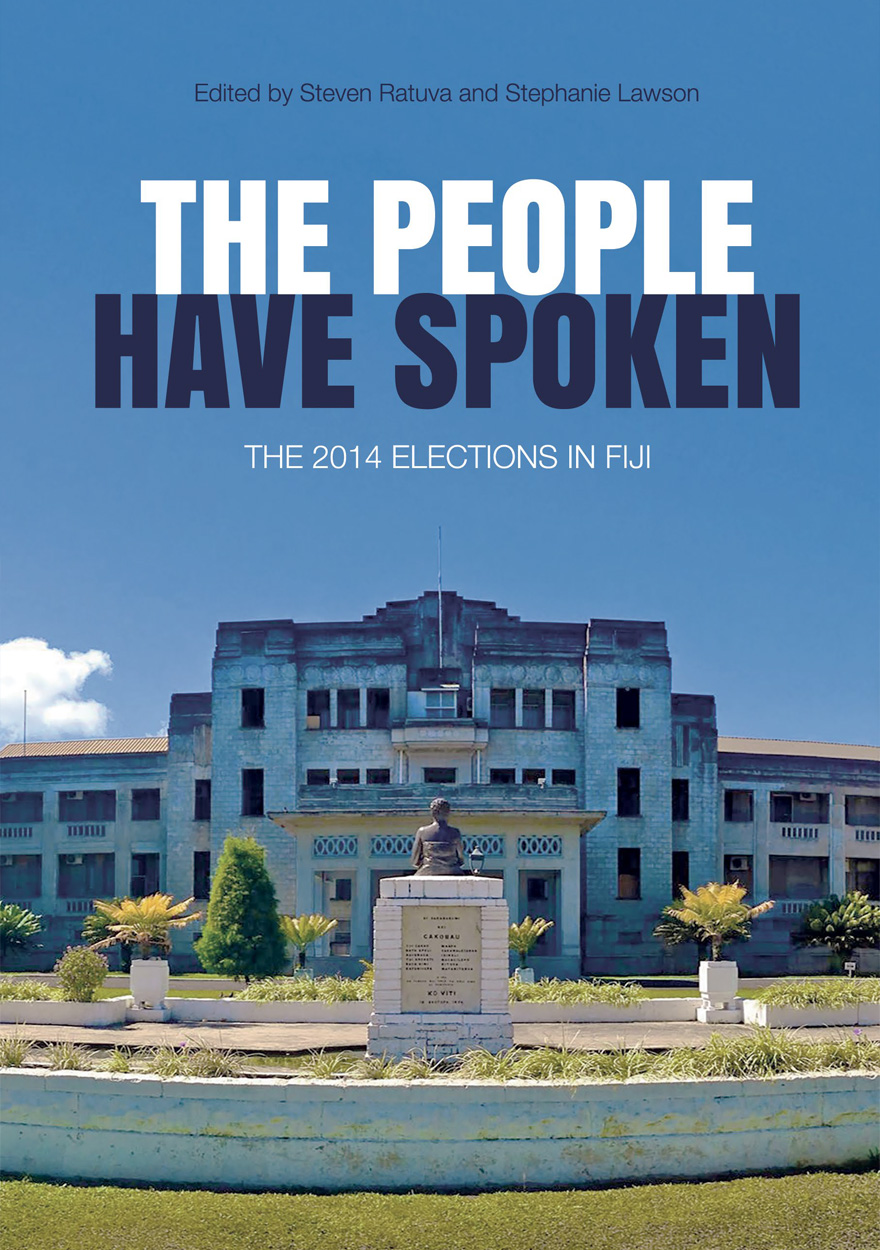
The people have spoken »
The 2014 elections in Fiji
Edited by: Steven Ratuva, Stephanie Lawson
Publication date: March 2016
The September 2014 elections in Fiji was one of the most anticipated in the history of the country, coming after eight years of military rule and under a radically new constitution that introduced a system of proportional representative (PR) and without any reserved communal seats. The election was won overwhelmingly by FijiFirst, a party formed by 2006 coup leader Frank Bainimarama. He subsequently embarked on a process of shifting the political configuration of Fijian politics from inter-ethnic to trans-ethnic mobilisation. The shift has not been easy in terms of changing people’s perceptions and may face some challenges in the longer term, despite Bainimarama’s clear victory in the polls. Ethnic consciousness has the capacity to become re‑articulated in different forms and to seek new opportunities for expression. This book explores these and other issues surrounding the 2014 Fiji elections in a collection of articles written from varied political, intellectual and ideological positions.



